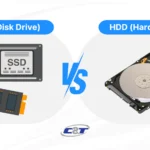In 2025, the workplace will be a dynamic, fluid, and frequently harsh environment. A relic of the past is the idea of a straight career path, in which one merely “climbs the ladder” through tenure and loyalty. These days, career advancement is an active, strategic endeavor rather than a passive one. Working smarter by constantly improving your skills is the most effective lever you can use to speed up your journey, rather than just working harder.
And the main force behind this change? The proliferation of excellent online courses.
I firmly believe that we are living in the heyday of professional development, having spent more than ten years as a career development writer examining labor market trends and the nature of work in the future. Anyone with an internet connection can now access the best knowledge in the world, which was previously restricted to prestigious university lecture halls and pricey corporate training seminars.
However, overwhelm is a new problem that comes with this unparalleled access. Thousands of online classes can be found with a quick search, all of which promise to be the secret to your next career change or promotion. Which ones are actually worth your money, time, and effort?
This isn’t your typical listicle. This is a thorough, over 4,000-word plan for strategic upskilling. We’ll break down the most valuable and sought-after skill sets for 2025, pinpoint the best professional learning platforms, and highlight particular, excellent online classes that can yield a noticeable return on your investment. This is your go-to resource for selecting the best classes to support your career advancement and create a professional life that is future-proof.
The New Professional Mandate: The Importance of Lifelong Learning
It’s important to comprehend the “why” behind this change before delving into particular courses. The workplace is changing due to a number of strong forces, which makes ongoing skill development crucial.
- The AI Revolution: Automation and artificial intelligence are not merely sci-fi; they are actively changing the nature of work. Automating repetitive, process-driven tasks is becoming more and more common. Professionals who can work with AI, harness its potential, and concentrate on distinctively human abilities like creativity, emotional intelligence, and strategic thinking will prosper.
- The Half-Life of Skills: The “half-life” of a professional skill, or how long it takes for a skill to lose half of its initial value, is drastically decreasing. A skill that was innovative five years ago might be commonplace or even outdated now. Continuous learning is now a necessary career maintenance practice rather than a “nice to have.”
- The Rise of the “T-Shaped” Professional: Companies are looking for more “T-shaped” workers. This indicates that you possess a wide range of knowledge and abilities in related fields (the horizontal bar of the “T”) in addition to having deep expertise in one core area (the vertical bar). Better cooperation, creativity, and flexibility are made possible by this. The ideal resource for expanding the horizontal bar of your “T” is an online course.
The most direct way to show your present and potential employers that you are flexible, driven, and prepared for the demands of the contemporary economy is to invest in professional development through online classes.
The E-Learning Titans: Selecting the Best Platform for Your Objectives
Choosing the appropriate platform is the first step in your upskilling process. Every major player has a unique focus, learning style, and set of strengths.
Coursera: The Powerhouse at the University Level
Best for: In-depth studies of difficult subjects, university-recognized certifications, and academic rigor.
Overview: Coursera offers a huge selection of individual courses, specializations (a group of related courses), and full-fledged online master’s degrees through partnerships with more than 200 of the top universities and businesses in the world (think Yale, Google, IBM, and Stanford).
Why it stands out for career advancement: A certificate from a prestigious university, such as Google or the University of Pennsylvania, is highly credible and adds substantial weight to a resume. Numerous courses are included in professional certificate programs that are specifically made to get you ready for jobs that are in high demand.
edX: The Non-Profit Substitute for Esteemed Education
Best for: Access to MicroMasters programs, demanding technical subjects, and MIT and Harvard courses.
Overview: edX is a non-profit platform that was founded by Harvard and MIT and uses a model of university partnerships that is comparable to Coursera. It provides a broad range of classes, from beginning to advanced, frequently emphasizing computer science and STEM.
The “MicroMasters” programs are a distinctive offering, which is why they stand out for career advancement. These are a set of graduate-level courses that can offer a comprehensive credential and, if you are accepted into the program later, may even count as credit toward a full master’s degree.
LinkedIn Learning: The Business Skill-Builder
Best for: software tutorials, creative development, and practical, bite-sized business skills.
Overview: Previously known as Lynda.com, LinkedIn Learning is a subscription-based platform that offers thousands of video courses taught by professionals in the field. Academic theory is less important than immediately applicable, real-world skills.
What makes it unique for career progression: It seamlessly integrates with your LinkedIn profile. Adding completed course certificates to your profile is a simple way to let recruiters and your network know about your new abilities. LinkedIn Learning is a very accessible tool for professional development, with many companies offering their employees free access to it.
Udacity: The Technology-Driven “Nanodegree” Expert
Best for: Career services, project-based learning, and tech skills that are ready for the workforce.
Overview: Udacity only teaches technology skills. The “Nanodegree,” a rigorous, project-based program co-developed with tech behemoths like Google, Amazon, and Microsoft, is its flagship offering. These courses are intended to prepare you for employment in domains such as autonomous systems, data science, and artificial intelligence.
What makes it unique for career progression: The practical, project-based methodology is priceless. You develop a portfolio of actual work that you can show potential employers in addition to learning theory. Additionally, they provide career services like interview preparation and resume reviews.
Skillshare: The Playground for Creatives
Best for: shorter, project-based classes, hands-on workshops, and creative skills.
With a strong emphasis on creative industries like graphic design, illustration, photography, video editing, and creative writing, Skillshare is a subscription-based platform. Additionally, its library of business and marketing courses is expanding.
What makes it unique for career progression: Skillshare is a great way for creative industry professionals to stay up to date on new software and techniques. The classes’ project-based format aids in the ongoing development of your portfolio.
The 2025 In-Demand Skill Sets: The Best Online Courses for Observable ROI
Let’s be more precise now. For the most career advancement, where should you concentrate your learning efforts? The best online classes in each of the top skill domains are listed here.
Domain 1: Machine Learning and Artificial Intelligence
AI is now a fundamental technology affecting all industries, not just a specialized one. While deep skills can lead to some of the most lucrative careers, all professionals now need to have a basic understanding of AI.
- For the Novice (Establishing Basic Knowledge):
- Course: Google AI Essentials (available on Coursera)
- Why it’s a top choice: This course is intended for non-technical professionals and is taught by Google AI experts. It demystifies artificial intelligence, breaks down fundamental ideas without resorting to complex mathematics, and emphasizes how to spot and seize AI opportunities in your own work. This course is ideal for becoming “AI-literate.”
- Career Pivot or Deepening Skills for the Aspiring Practitioner:
- Course: DeepLearning.AI & Stanford University’s Machine Learning Specialization (Offered on Coursera)
- Why it’s a top choice: One of the most reputable introductory programs in the world, it is co-taught by Andrew Ng, a world expert on artificial intelligence and co-founder of Coursera. It offers a thorough and mathematically based introduction to machine learning, which makes it an effective starting point for a career in the area.
- Upskilling for the Developer:
- Course: Udacity offers a Nanodegree in Machine Learning Engineering
- Why it’s a top choice: This program requires you to build and implement actual machine learning models, going beyond theory. Tech companies want to see your project-based portfolio.
Domain 2: Analytics and Data Science
The ability to gather, evaluate, interpret, and visualize data is a superpower in any field, including marketing, finance, and human resources. Data is the new oil.
- For the Complete Novice:
- Course: Google Data Analytics Professional Certificate (available on Coursera)
- Reasons for being a top choice: This is among the most well-liked and prosperous professional certificate programs on the market. In less than six months, you go from knowing nothing to being prepared for a position as an entry-level data analyst. You will learn how to process and visualize data using programs like Tableau, R, SQL, and spreadsheets.
- For the Data-Leveraging Business Professional:
- Course: HarvardX Data Science for Business (Offered on edX)
- Why it’s a top choice: This course emphasizes the strategic use of data science rather than the technical aspects of coding. It is ideal for managers and leaders because it teaches you how to think like a data scientist and how to lead data science teams and projects.
- For the Excel Wizard (upgrading it):
- Course: Introduction to Python for Data Science (available on Coursera or DataCamp, among other platforms)
The next logical step for career advancement if you’re proficient in Excel is to learn a programming language like Python. Python can do analyses on a scale that spreadsheets cannot match and automate your data cleaning chores.
Domain 3: Management and Leadership
Your ability to lead, influence, and manage others becomes more important as your career progresses than your specific technical skills. These “soft skills” can be methodically acquired and are extremely valuable.
- To the New Manager:
- **Course: *Management Fundamentals for First-Time Managers* (Offered on LinkedIn Learning)
- Why it’s a great choice: LinkedIn Learning is very good at this kind of hands-on, role-based training. From delegation and feedback to conducting productive meetings, this course offers an excellent summary of the fundamental duties of a new manager.
- Strategic Development for the Experienced Leader:
- Course: Northwestern University’s Organizational Leadership Specialization (available on Coursera)
This university-backed specialization delves deeper into the theory and practice of effective leadership, which is why it’s a top choice. It is perfect for senior leaders who want to improve their strategy because it covers subjects like team dynamics, negotiation, and leading organizational change. - The Universal Power Skill (For Everyone):
- Course: Yale University’s The Science of Well-Being (available on Coursera)
- Why it’s a top choice: Although it’s not a conventional “business” course, there’s a good reason why this is Yale’s most popular course ever. It imparts knowledge about the science of happiness and the development of constructive habits. An enormous advantage for career advancement is that a leader who is aware of the factors that influence well-being is better able to control their own stress and foster a supportive, productive work environment for their team.
Project Management Domain 4
One skill that is universally valued is the ability to successfully manage projects from inception to completion. In every industry, certified project managers are highly sought after.
- The Gold Standard for Future Project Managers:
- Course: Google Project Management: Professional Certificate (available on Coursera)
- Why it’s a top choice: This extensive program prepares you for industry-recognized certifications such as the Project Management Institute’s (PMI) Certified Associate in Project Management (CAPM) and, crucially, for an entry-level project management role.
- Learning the Methodology (For Everyone):
- Course: Udemy offers the Agile Crash Course: Agile Project Management; Agile Delivery
- Why it’s a top choice: Agile is the most popular project management approach in the technology sector and is spreading quickly outside of it. A brief, hands-on introduction to Scrum and Agile principles is given in this course, which will increase your adaptability and value as a team player.
The Learner’s Action Plan: How to Get the Most Out of Online Courses
It is insufficient to merely sign up for online classes. You need a plan for choosing, finishing, and applying your new knowledge if you want to genuinely drive career advancement.
Step 1: Clearly State Your “Why.”
Consider your main objective before looking through any of the courses. Is this a promotion? A change of profession? More money? Or just to be more productive in my present position? The kind of course you should take will depend on your objective.
Get Your Employer to Cover the Cost in Step Two.
A lot of businesses allocate funds for professional development. It is among the employee benefits that are most underutilized. Present your request to your manager in terms of the company’s return on investment.
- The Pitch: “I would like to enroll in this [Specific Course Name] online course because I think the skills I gain from [e.g., data visualization with Tableau] will enable me to [e.g., create more effective sales reports that will help our team identify key trends faster].” The cost is [$$$], and I think the team will get a substantial return on investment.
The third step is to time-block your learning.
Give your online classes the same consideration as a traditional classroom. Set aside specified, non-negotiable time slots on your calendar to watch lectures and finish homework. The secret is consistency.
Step 4: Participate, Don’t Just Eat.
Watching videos passively is not enough.
- Make thorough notes.
- Engage in the discussion boards for the course.
- Complete the optional projects and assignments.
- Make an effort to use what you’re learning right away on a project at your real job. The more you engage, the more you will retain.
Step 5: Present Your New Capabilities
Avoid hiding your light under a bushel.
- Update Your LinkedIn Profile: In the “Licenses & Certifications” section, include your new certificate. Write a post outlining your learnings and future plans.
- Update Your Resume: Add a special section for “Skills & Certifications” or “Professional Development.”
- Talk About It: In your upcoming performance review, bring up your new abilities. Seek out projects that will allow you to put your newfound knowledge to use. Show off your newfound knowledge.
Invest in your career because it is your greatest asset.
Your portfolio of pertinent, in-demand skills is your most valuable asset in the twenty-first-century economy, not your job title or years of experience. The need for growth and adaptation will remain constant despite the dizzying pace of change in the workplace.
These online classes are strategic investments in your professional development, not just courses. These are tools that enable you to take charge of your professional story and transform from a passive worker into the proactive creator of your own success.
There has never been a better chance to promote your career. Now, the question is, “Will I make the choice to invest in myself?” rather than, “Can I learn the skills I need to get ahead?” Your future self depends on it.
SOURCE:









